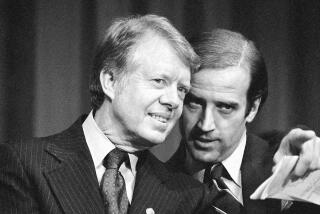Human Rights Issue Splits Culture Forum
- Share via
BUDAPEST, Hungary — A six-week East-West conference on culture ended Monday in disarray over conflicting views on human rights, with the Soviet Union and the United States failing to agree on a final statement.
The Soviets’ deputy culture minister, Gregory A. Ivanov, described the United States as a country “where censorship, direct and indirect, has been rampant.”
He added: “Wide sections of the population have been denied access to literature, simply because they are illiterate. Cultural and physical genocide has been practiced and we see examples of racism and anti-Semitism.”
Walter J. Stoessel, leader of the U.S. delegation, denied the charges and said that the Soviet position violates the spirit of last week’s summit between President Reagan and Soviet leader Mikhail S. Gorbachev. He said Gorbachev had told reporters there that the two superpowers agreed “to stop making stupid remarks about each other.”
Both sides issued separate statements to mark the end of the so-called Budapest Cultural Forum that brought together more than 700 delegates. The forum was an offshoot of the 1975 Helsinki accords on human rights. The Western statement called for free assembly, an end to censorship, unimpeded radio and television broadcasting from abroad, free exercise of cultural rights for ethnic minorities and “full respect for human rights and fundamental freedoms.”
The Eastern draft suggested there was no place for culture outside of state-controlled activities.
More to Read
Sign up for Essential California
The most important California stories and recommendations in your inbox every morning.
You may occasionally receive promotional content from the Los Angeles Times.








